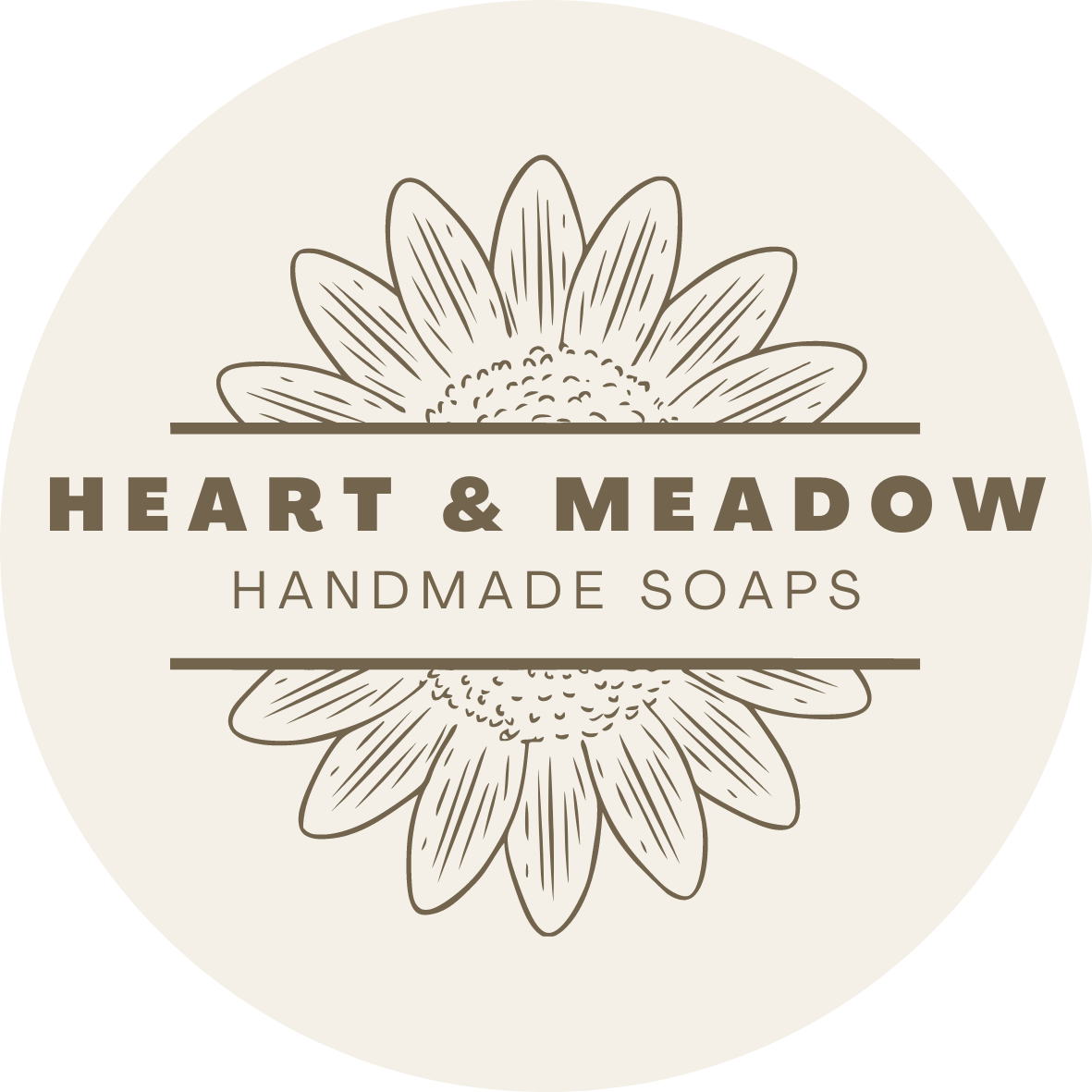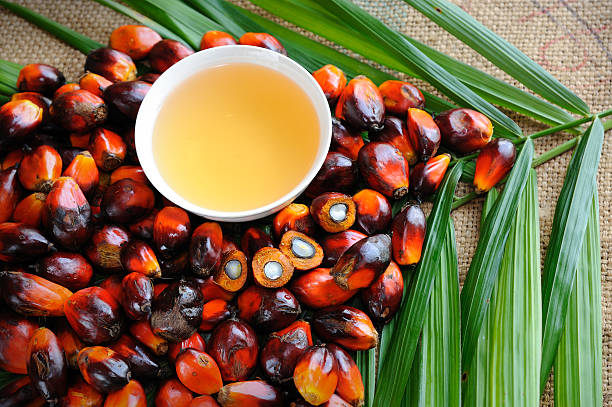You may have heard some not so great things about palm oil. You may have also noticed that some of my soaps contain palm oil. And finally, you may have read about my commitment to being an environmentally responsible maker, and wondered if I'm just a greenwashing hypocrite. Nothing could be further from the truth. Let me explain.
What is Palm Oil?
Palm oil comes from the fruit of palm trees - no big shocker there. There are actually two different types of oil from palm trees - one comes from squeezing the fleshy fruit of the tree, while the other comes from squeezing the nut, or kernel inside. Oil palms are different from coconut palms, which confused the hell out of me in the beginning. Oil palms are native to Africa but were introduced to southeast Asia about a century ago. They thrive in tropical climates, so today about 85% of the world's supply of palm oil comes from Indonesia and Malaysia. By far the largest consumers of palm are China and India. For perspective, the United States makes up about 2% of global palm consumption.
What's so great about Palm Oil?
First, it's a very productive plant, which means farmers can generate more oil-per-acre than they could with other crops. This is good on a macro-level, because more yield per acre means you can meet the demand for palm oil with fewer resources, like water and acreage. It's cheaper to cultivate, which is good news for the folks who rely on palm oil production to feed their families. And it is a reliably high-quality oil with unique properties that make it useful for a variety of different applications. African and Asian countries use it as cooking oil like Americans use EVOO or Canola. It has a long shelf-life because it is resistant to oxidization, so it became the oil of choice for processed foods when trans fats were banned. Because it is odorless and colorless, it is commonly used in cosmetics. And it's used to make biodiesel, which is pretty cool!
For our purposes here at Heart & Meadow, palm oil simply makes a lovely bar of soap - one that is long lasting, moisturizing, and silky with lots of lather and good cleansing ability. Not all oils are created equal (we'll talk about that in another post), and frankly I love working AND washing with palm oil soaps.
Okay, what's the bad news?
::sigh:: This is why we can't have nice things. Because it's cheap and versatile,

the demand for it is high, and so farmers in countries where these trees thrive will do whatever they can to increase their production, including clear-cutting tropical rainforests to plant palm. Characterizing them as "farmers" is a bit of a misnomer - we're talking vast palm tree plantations, here. The ecological impact is severe: according to the World Wildlife Federation, an area roughly the size of California was lost to global deforestation from 2004-2017. Precisely WHY deforestation is a problem (climate change, loss of wildlife habitat, indigenous population disruption & displacement, just to name a few) is beyond the scope of this post. But just to bring the point home: deforestation makes it easier for traffickers to abduct baby sloths, and 80-90% of trafficked sloths die in transport*.
But I love sloths! Boycott all the Palm!
Not so fast. Trust me, I'll cut a b**ch over a baby sloth, but unfortunately the solution is not so simple. There are many idealistic nonprofit environmentalist groups, and even some governments, who call for an outright ban on palm. I appreciate their passion. But then what? What moves in to take palm's place? Coconut? Soybean? Olive? As previously mentioned, the yield-per-acre for these other crops can't hold a candle to palm, and so an outright ban could very well be jumping out of the pot and into the kettle, from an environmental perspective.
Furthermore, not for nothing, but the countries that produce palm oil are not exactly brimming with uber-rich barons of industry. Palm production has lifted a lot of Indonesians and Malaysians out of poverty, and frankly I find it rather arrogant that the loudest calls for palm boycotts come from Europe, the US, and Australia - none of whom are majority producers OR consumers of palm oil products. In other words, it's pretty easy to claim the moral high ground when you've got no real stake in the game.
Okay, but the impact is real. What can we do?

Enter the RSPO, or Roundtable on Sustainable Palm Oil. From their website:
Now, I've read plenty of criticisms of the RSPO. But without a viable alternative, actively supporting RSPO certified palm is, in my opinion, more ethical than a palm ban/boycott.
Reality Check
Listen, I know that the amount of palm oil that I use in my soaps is not just a drop in the bucket - it is a single water molecule in the Pacific. But principles matter. Integrity matters. This is why I source all of my oils (not just palm) from JEdwards International Inc., who offers Organic, Sustainable, Fair Trade, and Non-GMO Certified products. JEdwards' palm oil is RSPO-IP (Identity Preserved) Certified. From their website, "RSPO-IP certification is one of four certification levels offered by the RSPO and carries the highest and strongest level of sustainable guarantee with traceability of each lot of palm oil back to the field of origin. With Identify Preserved sustainable palm oil, the entire batch of palm oil is from a single identifiable certified source and kept separate from all non-certified batches."
As an added bonus they are located in Massachusetts so my supplies are not traveling thousands of miles across the country to reach me.
In Conclusion
At this point, I'm sure I've lost most of you, and if you've managed to read to the end, it's pretty unlikely that you care about palm oil as much as I do. But I wanted to address this controversial topic in order to demonstrate just how carefully I craft my products here at Heart & Meadow. I make every effort to choose ingredients and packaging that provide you with the most amazing products while still treading lightly on the world we live in. As always, please feel free to email me at hello@heartandmeadow.com with any questions or concerns.
Live clean,
Anna

*the sloth trafficking problem exists in Central and South America, while the oil palm deforestation problem is mostly in southeast Asia, so this is not an exact cause-and-effect example. However, deforestation is alive and well in sloth habitat, mostly due to clear cutting to create pasture for livestock.

